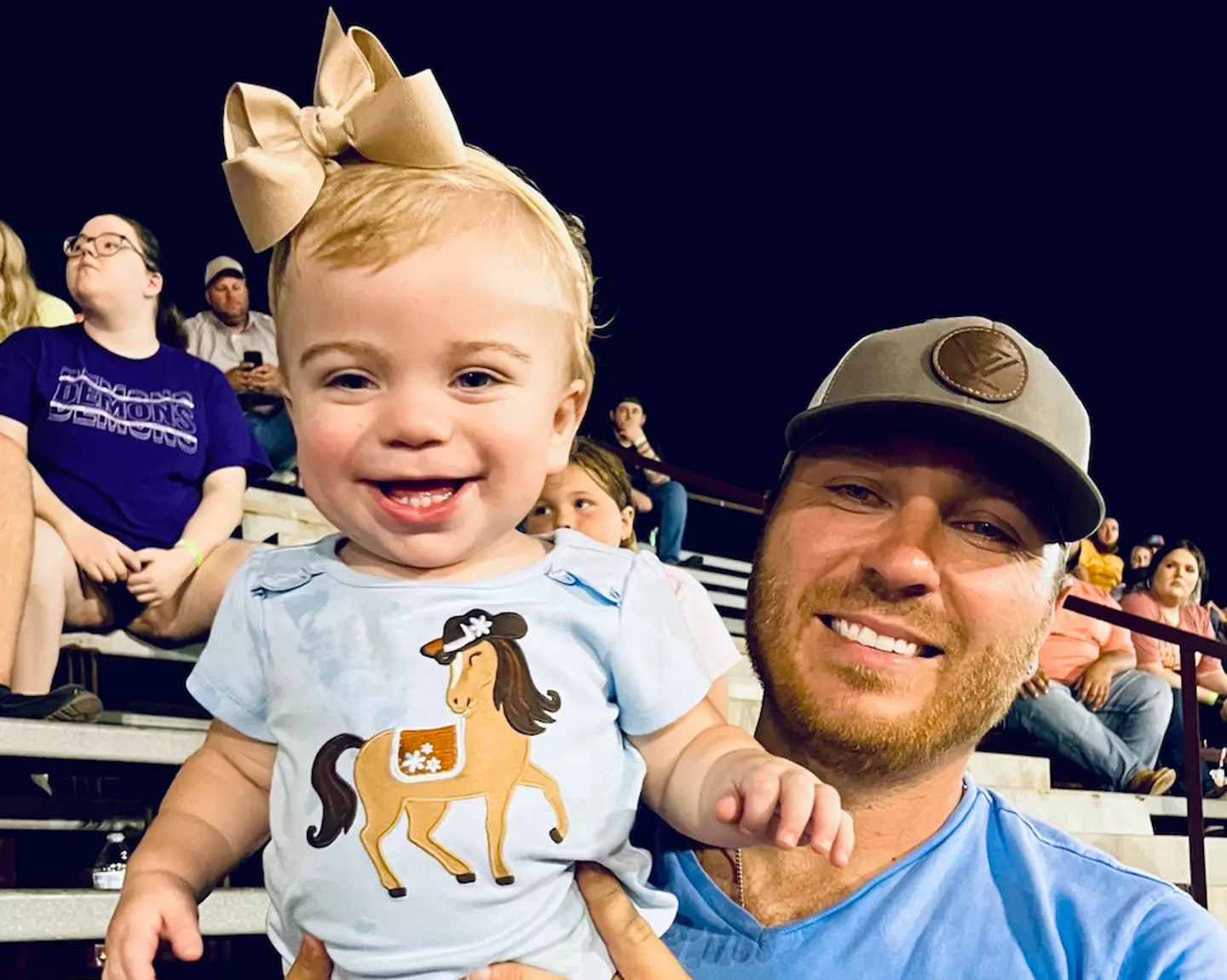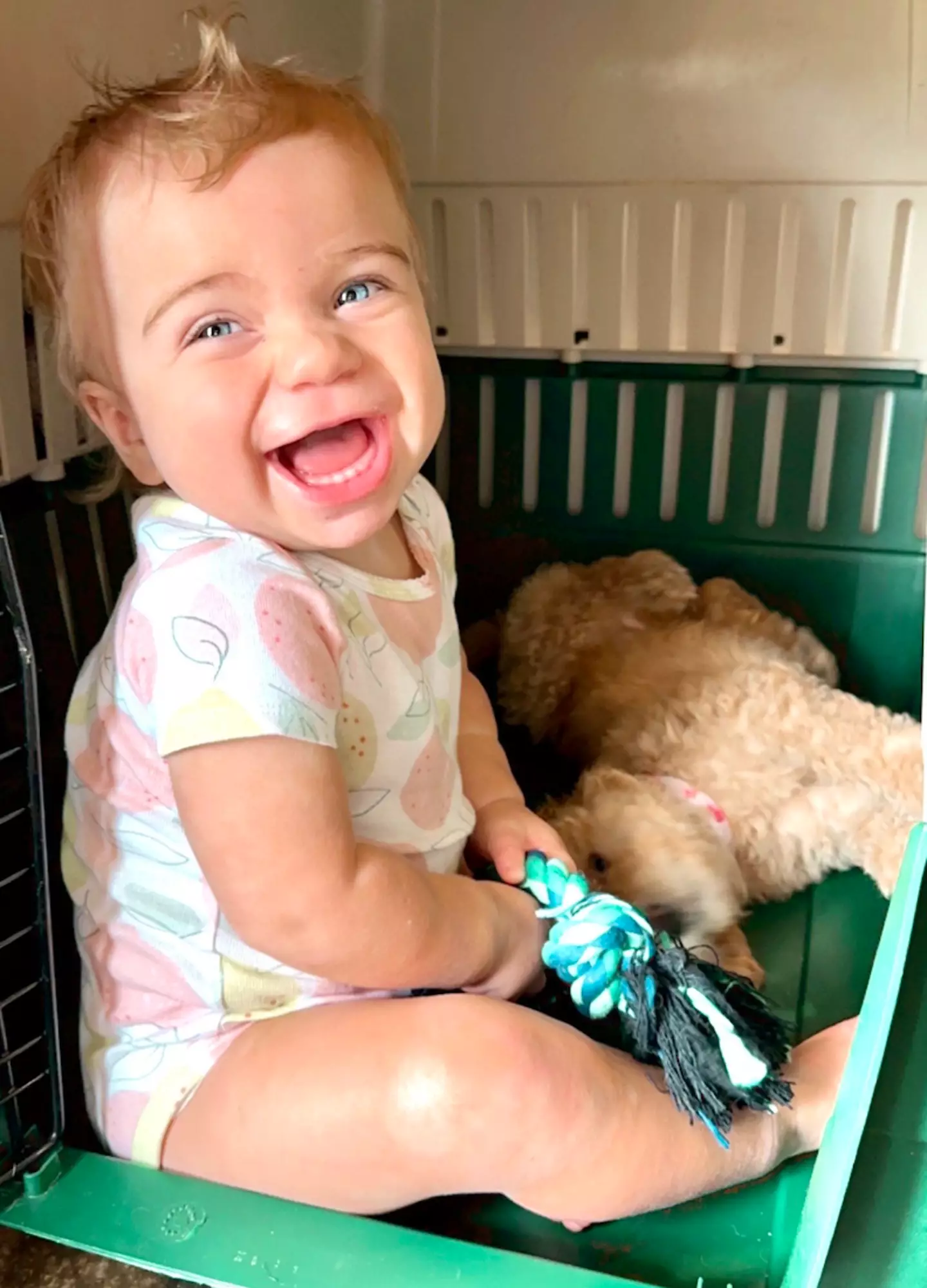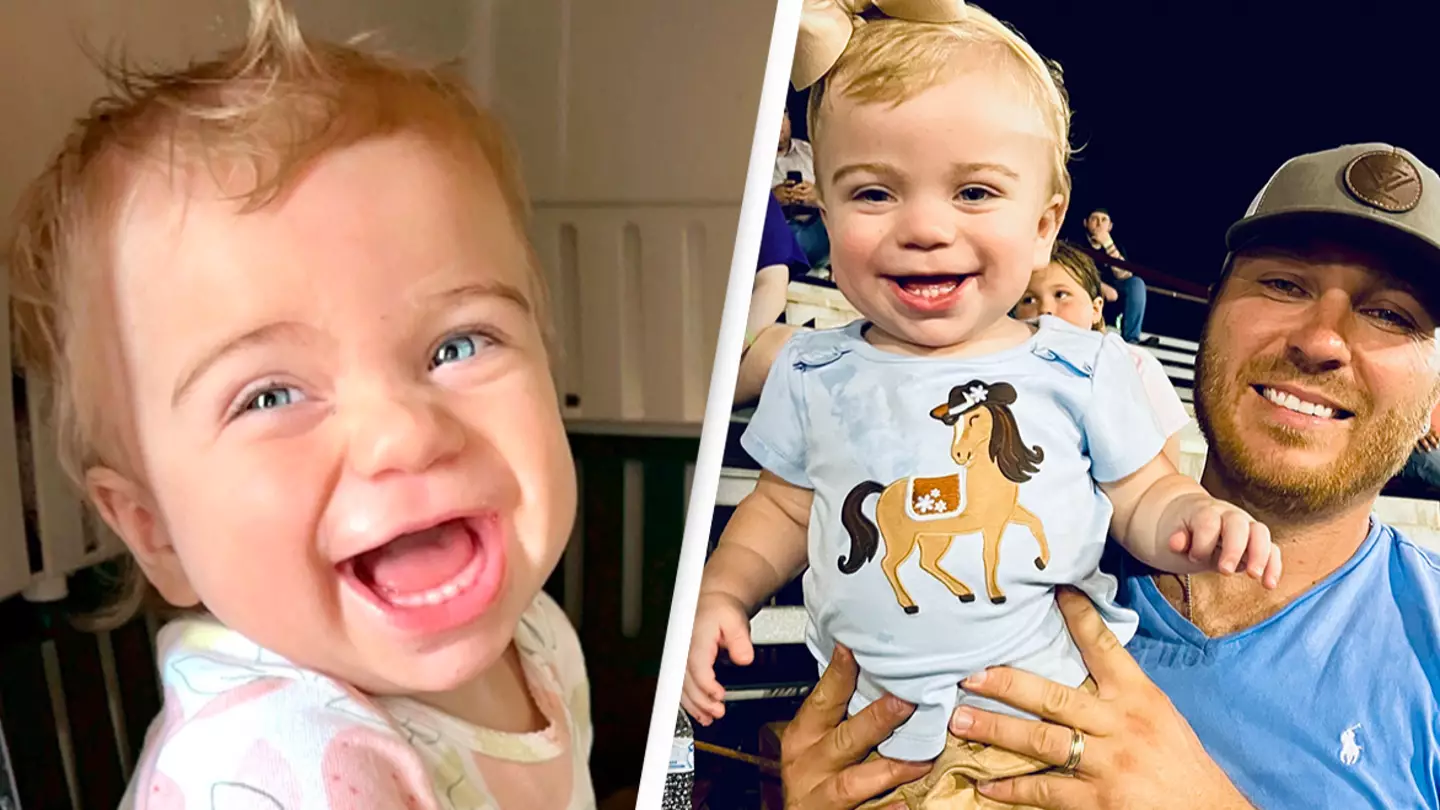A mother has shared her emotional journey upon discovering her infant daughter was diagnosed with a condition likened to childhood Alzheimer’s, an ordeal that began with a coincidental TikTok video. Morgan Rachal, 29, who is also a nurse, initially believed her daughter, Lydia, born in October 2022, was experiencing common infant troubles such as ear infections and occasional sleep disturbances.
Reflecting on Lydia’s early days, Morgan said, “The doctor described her as ‘perfect’ at birth. She was meeting all her early milestones. The issues she had seemed like typical baby problems, so I wasn’t overly concerned.”
The unexpected turn in their lives came when Morgan’s mother, Cindy, stumbled upon a TikTok video featuring a child who bore a striking resemblance to Lydia and was suffering from a rare disorder known as Sanfilippo syndrome. “My mom found a TikTok one day in March — the ‘saving Liv TikTok’. The little girl looked exactly like Lydia,” Morgan recounted. This prompted a deeper dive into the symptoms and characteristics of the syndrome.

Sanfilippo syndrome is marked by distinct physical traits such as fuller lips, bushy eyebrows that meet over the nose, or hirsutism, which involves excessive hair growth. Alarmed by the similarities, Morgan brought this information to her doctor, leading to blood and urine tests for Lydia.
A week after these tests, the diagnosis was confirmed: Lydia had Sanfilippo syndrome B, an uncommon metabolic disorder that progressively robs children of their acquired skills, earning it the moniker “childhood Alzheimer’s.”
“Receiving the diagnosis was devastating. It’s absolutely heart-wrenching,” Morgan shared. Yet, despite the diagnosis, Lydia, who currently knows about 20 words and is described as a very happy baby, shows no cognitive decline. However, without treatment, she will begin to regress typically between the ages of three and four.

While there is no cure for Sanfilippo syndrome at present, Morgan remains hopeful as she seeks potential treatment options through clinical trials. “They refer to it as childhood dementia. Without treatment, she won’t be able to walk or talk, and she won’t survive past her third decade of life,” Morgan explained, emphasizing the urgency of early intervention.
Morgan’s new mission is to increase awareness about Sanfilippo syndrome to ensure other children can be diagnosed and potentially treated earlier. She is also committed to supporting research and trials aimed at finding a cure. “Her joy and her future depend on getting the treatment she needs,” Morgan concluded, hopeful yet determined in the face of this challenging diagnosis.

